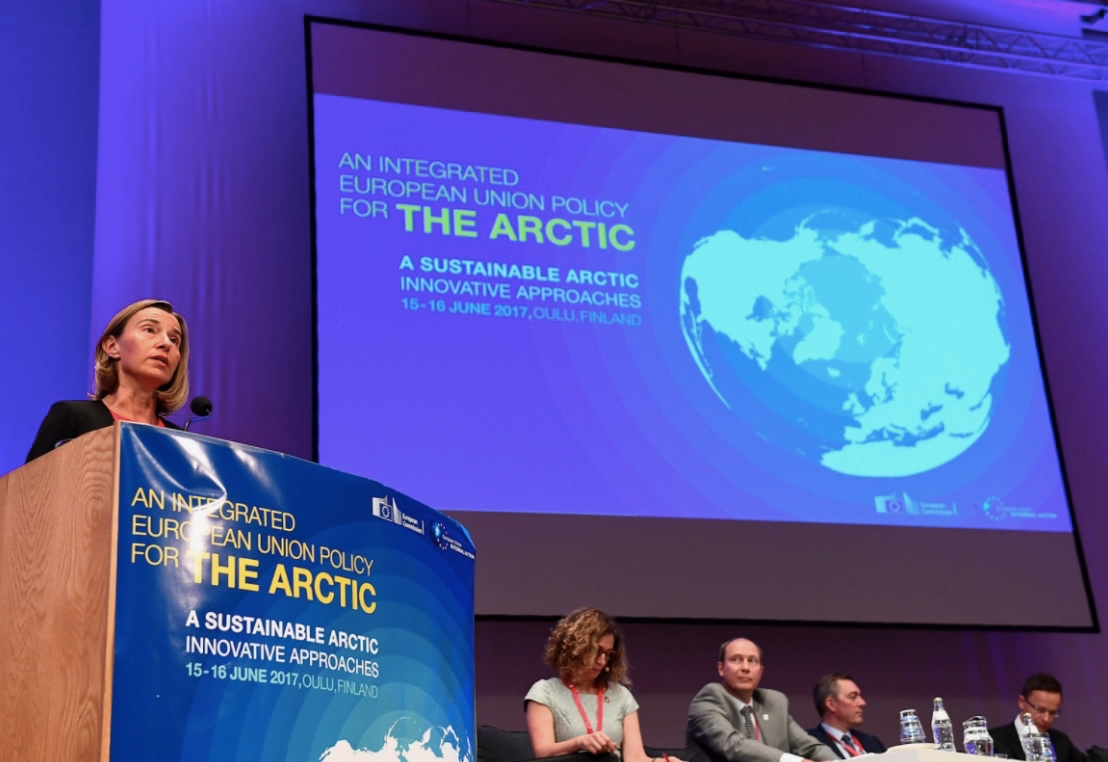The EU moves forward toward a new Arctic strategy — and a more independent role in the region
A revised Arctic policy should view region’s issues as “global in nature,” the incoming European Commission has been told.

Europe’s foreign ministers have given the green light to Brussels to update the European Union’s Arctic strategy, furthering expectations that the EU will seek to play a more active role in the region.
“Developments in the Arctic are progressing at rapid pace. The European Union needs to ensure that its own policy approach would take account of relevant developments,” the European Council said in a statement on Monday after its most recent meeting.
[The EU is poised to take a broader — and more proactive — role in the Arctic]
The decision serves as a form of instruction from the council, which is made up of cabinet members from each of the EU’s 28 member states, to the European Commission, the EU’s executive arm, and to the EU’s foreign service. The two organizations are responsible for drawing up the EU’s Arctic strategy, a document that sets out the role Brussels sees itself playing in the region.
It comes after Ursula von der Leyen began her five-year term as president of the commission this month. Officially, she has now been told to continue the policy towards the Arctic set out in 2016 by the previous European Commission, and to look into whether an updated strategy is necessary.
Should the von der Leyen commission issue an update, it would be the third since the strategy was published in 2008. But while the 2016 update deals with soft-power issues, including the environment and development, a new version is likely to see Brussels look at the region from a foreign policy perspective, according to EU officials.
A separate foreign policy strategy, also published in 2016, states that the EU has a strategic interest in the region, but rather than acting on its own to achieve its goals it has committed itself to working through existing regional organizations, including the Arctic Council.
Any new strategy would continue to recognise that Arctic states “should lead the process” in the Arctic, according to Jari Vilén, a senior advisor to the European Commission specializing is Arctic issues, but he believes Brussels will need to react to the increasing interest non-Arctic countries are taking in the region by seeking to act on its own.
“Finding a way to involve all stakeholders, not just Arctic stakeholders, will be the big question the EU will need to address,” he said.
[Bringing the Arctic to Brussels]
Brussels, according to Vilén, sees as a solidifying “triangular relationship” in the region amongst China, the U.S. and Russia, and that EU’s response will be to use the revised strategy to position itself as an alternative to China.
“China is in the Arctic, and China will continue to be in the Arctic,” he said. “What the EU can offer is a balance between economic activity and environmental protection.”
Although not a part of the process of updating the policy, the European Parliament is likely to weigh in by suggesting the priorities it would like the union to set, according to Urmas Paet, an Estonian MEP who has long urged the EU to be more active in the region.
He hoped any new policy would serve as a “concrete action plan on the EU’s engagement in the Arctic”, that, unlike the current strategy, addressed the security issues.